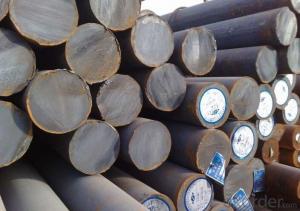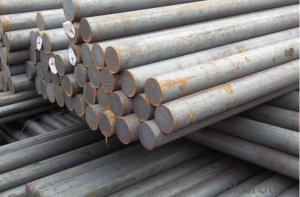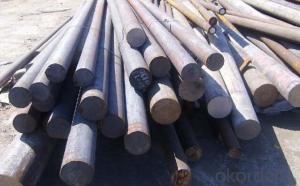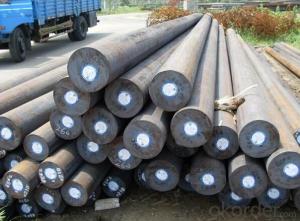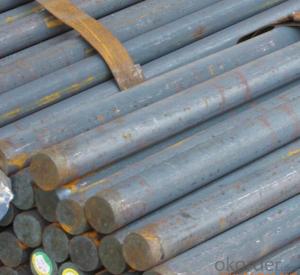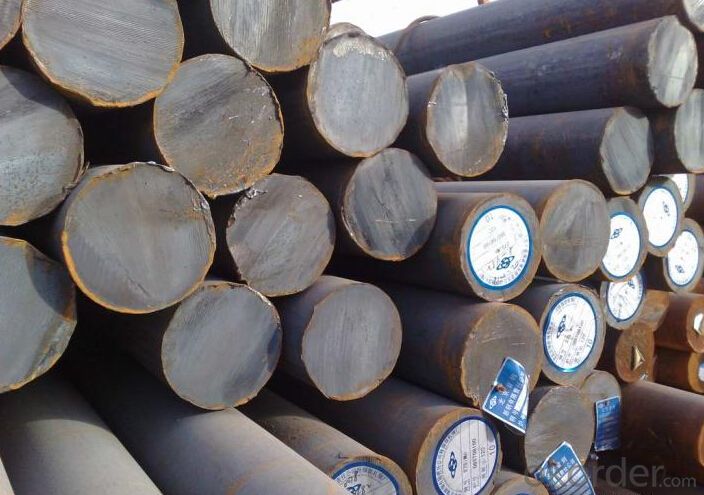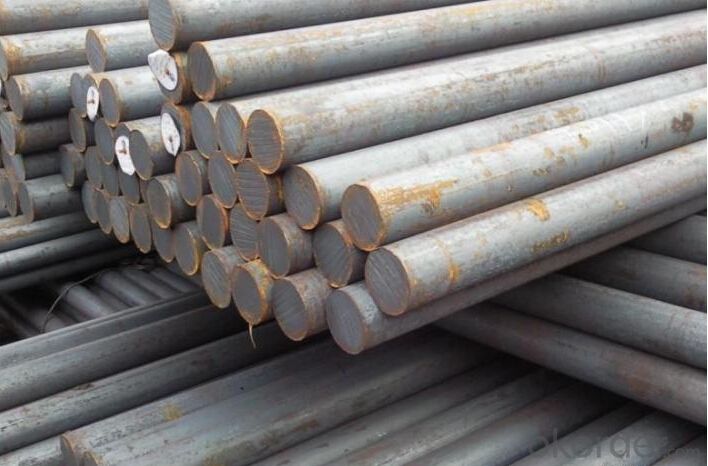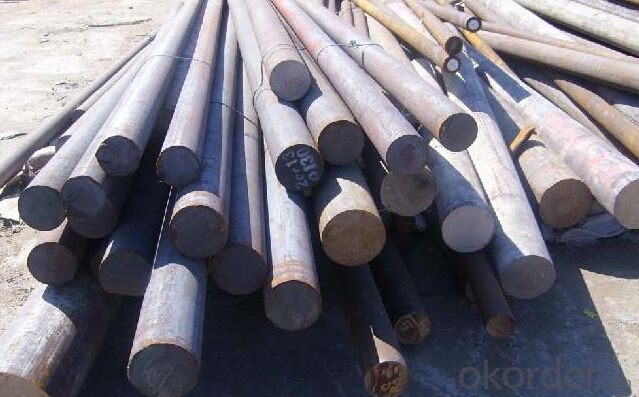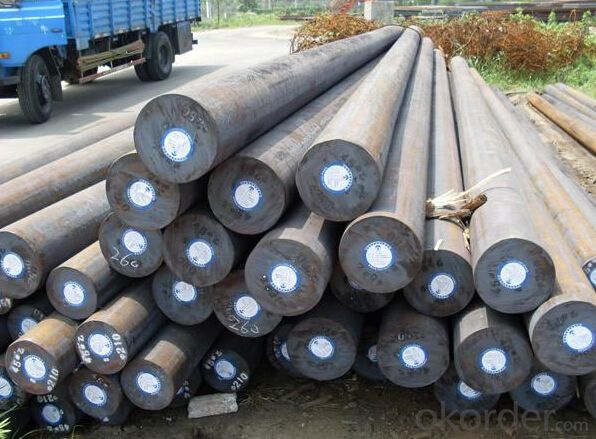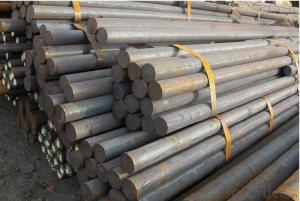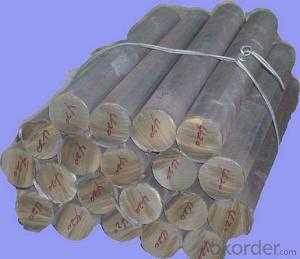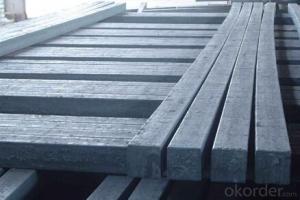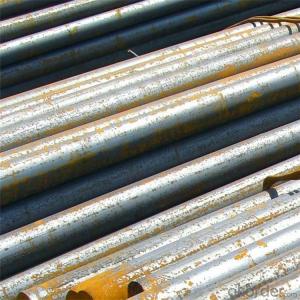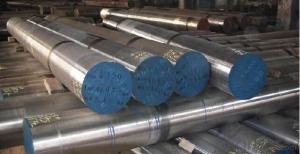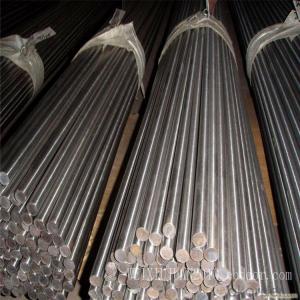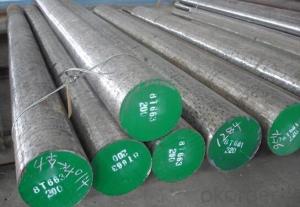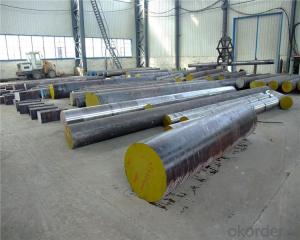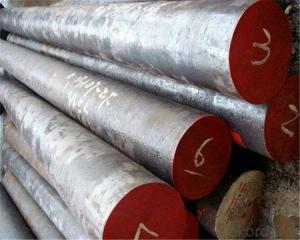EN19/30CrMo A30302 /4130/SCM430/25CrMo4 1.7218 alloy structural steel round bar
- Loading Port:
- Tianjin
- Payment Terms:
- TT or LC
- Min Order Qty:
- 3 m.t.
- Supply Capability:
- 10000 m.t./month
OKorder Service Pledge
OKorder Financial Service
You Might Also Like
Specification
EN19/30CrMo(A30302)/4130/SCM430/25CrMo4(1.7218) alloy structural steel round bar
Name | Steel Round Bar |
Shape | Round Bar/Square Bar/Flat Bar/Plate/Wire |
Standard | GB/ASTM/SAE/AISI/DIN/JIS/EN/BS |
Surface Treatment: | Black/Peeling/Polished/Machined |
Delivery Condition: | Hot Rolled or Forged/Peeled or Black Surface |
Test | SGS/UT 100% Elements Testing |
Certificate: | ISO/Mill Certificate |
Service: | 24 hours online service / |
more than 20 years trading and manufacture | |
Quality Assurance: | the third party inspection, such as SGS, BV, TUV…etc. is acceptable |
Packaging Details: | seaworthy packaging or as per customer's packing instruction |
Chemical Composition
C | Si | Mn | Cr | Mo | P | S | Cu | Ni |
0.26-0.34 | 0.17-0.37 | 0.40-0.70 | 0.80-1.10 | 0.15-0.25 | ≤ 0.035 | ≤0.035 | ≤0.30 | ≤0.30 |
Mechanical Properties
Tensile strength | Yield strength | Elongation rate | Contractibility rate | Hardness | Impact energy |
≥930MPa | ≥785MPa | ≥12% | ≥50% | ≤229 | ≥63J |
Packaging & Delivery
Packaging Detail | Sea worthy packing /as per customer's packing instruction |
Delivery Detail | 15 ~ 40 days after receiving the deposit |
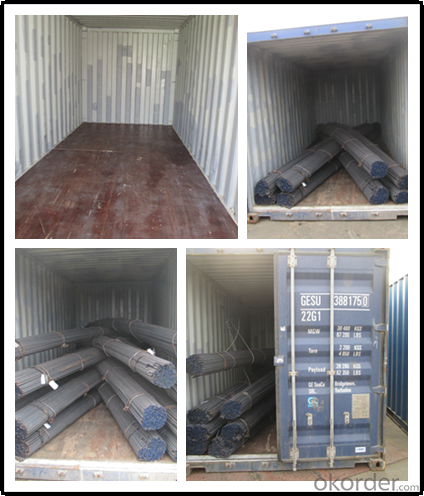
Product Show
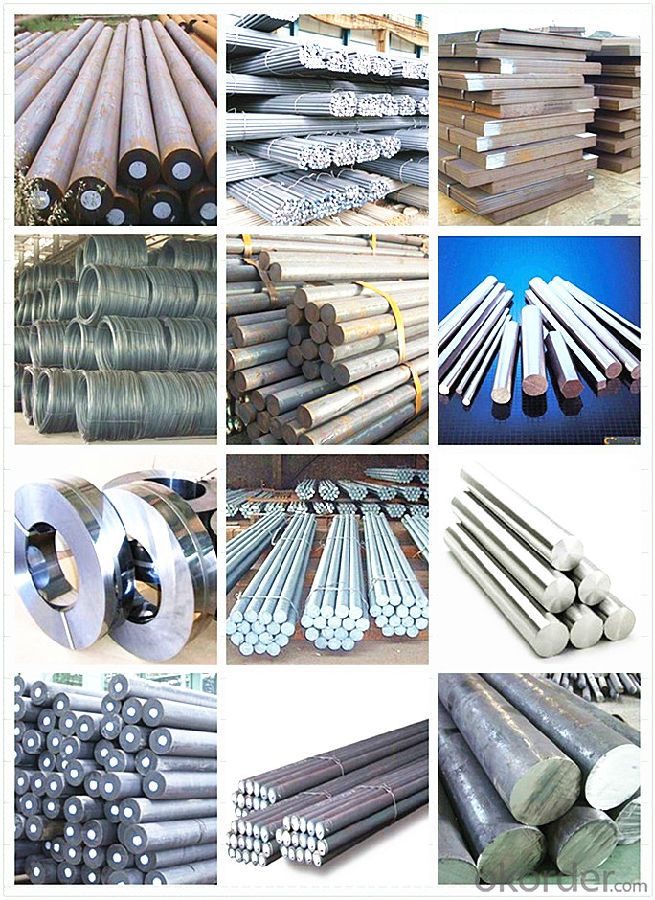
Workshop
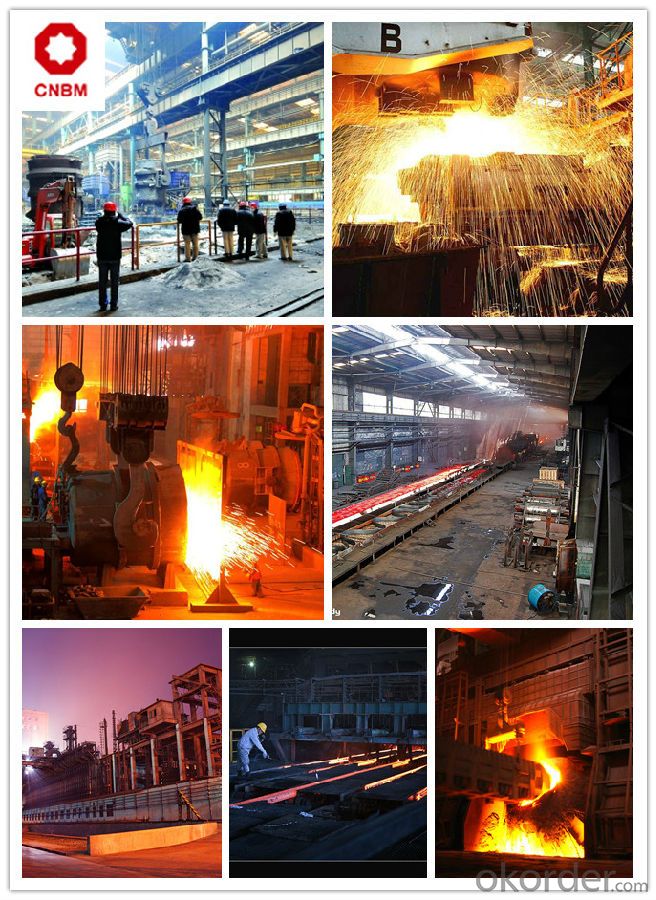
FAQ
Are you a trading company or manufacturer? | Manufacturer |
What’s the MOQ? | 3 metric ton |
What’s your delivery time? | 15-35 days after downpayment received |
Do you Accept OEM service? | Yes |
what’s your delivery terms? | FOB/CFR/CIF |
What's the Payment Terms? | 30% as deposit,70% before shipment by T/T |
Western Union acceptable for small amount. | |
L/C acceptable for large amount. | |
Scrow ,Paybal,Alipay are also ok | |
Why choose us? | Chose happens because of quality, then price, We can give you both. |
Additionally, we can also offer professional products inquiry, products knowledge train (for agents), smooth goods delivery, excellent customer solution proposals. | |
What's your available port of Shipment? | Main Port, China |
What’s your featured services? | Our service formula: good quality+ good price+ good service=customer's trust |
Where are your Market? | Covering more than 160 countries in the world |
Special steel and there is no uniform definition of the concept of special steel is generally considered to have a special chemical composition (alloying), using a special production process, with a special organization and performance to meet the special needs of the steel type. Compared with ordinary steel, special steel has a higher strength and toughness, physical properties, chemical properties, biocompatibility and process performance.
China and Japan, the EU definition of special steel closer, into the special steel quality carbon steel, alloy steel, high alloy steel (alloying elements greater than 10%) three categories, including steel and high-alloy special steel production accounted for 70%. The main advantages of special steel carbon structural steel, carbon tool steel, carbon spring steel, alloy spring steel, alloy steel, ball bearing steel, alloy tool steel, high alloy tool steel, high speed tool steel, stainless steel, heat-resistant steel , and high-temperature alloys, precision alloy, electric alloy. There are nearly 2,000 special steel grades, about 50,000 varieties and specifications in the world currently. In addition to a wide range of special steel outside, in the specification with ordinary steel also showed different characteristics. In addition to plates, tubes, wire, strip, rods and profiles outside, as well as composite materials, surface alloying material, surface treatment material, forging materials, precision casting, powder metallurgy products.
- Q: What is the purpose of annealing in special steel production?
- The purpose of annealing in special steel production is to improve the steel's mechanical properties and reduce its internal stresses. This process involves heating the steel to a specific temperature and holding it at that temperature for a certain period of time, followed by controlled cooling. Annealing helps to enhance the steel's ductility, toughness, and machinability, making it easier to work with and ensuring consistent and reliable performance in various applications.
- Q: How does special steel contribute to the telecommunications aftermarket industry?
- Special steel contributes to the telecommunications aftermarket industry by providing durable and high-quality components for various telecommunications equipment. This steel is used in the manufacturing of antennas, towers, cables, and other crucial parts, ensuring the reliability and longevity of the telecom infrastructure. Additionally, special steel's unique properties, such as corrosion resistance and high electrical conductivity, enhance the performance and efficiency of telecommunications systems, enabling seamless connectivity and better communication services.
- Q: How does special steel contribute to the automotive aftermarket industry?
- Special steel plays a crucial role in the automotive aftermarket industry as it offers enhanced strength, durability, and corrosion resistance compared to regular steel. This allows manufacturers to produce high-performance components such as engine parts, chassis components, and suspension systems. Additionally, special steel's unique properties enable the creation of lighter and more fuel-efficient vehicles. Its contribution to the aftermarket industry lies in providing the necessary materials for the production of high-quality and long-lasting aftermarket parts that meet the demands of vehicle customization and performance upgrades.
- Q: What are the main characteristics of corrosion-resistant steel?
- The main characteristics of corrosion-resistant steel include a high level of resistance to rust, corrosion, and staining. It is typically made with alloying elements such as chrome, nickel, and molybdenum, which enhance its ability to withstand harsh environments and corrosive substances. This type of steel is also known for its durability, strength, and longevity, making it suitable for a wide range of applications in industries such as construction, automotive, and marine.
- Q: How does silicon affect the characteristics of special steel?
- Silicon plays a crucial role in modifying the characteristics of special steel. When silicon is added to steel in controlled amounts, it enhances several important properties. Firstly, silicon improves the strength and hardness of steel, making it more durable and resistant to wear and tear. This is especially important in applications where the steel is subjected to high levels of stress or needs to withstand extreme conditions. Moreover, silicon also contributes to the heat resistance of special steel. It helps stabilize the steel's microstructure at elevated temperatures, which prevents the material from losing its strength and shape under heat exposure. This makes silicon-infused special steel highly suitable for use in high-temperature environments, such as in furnaces, power plants, and automotive engines. Additionally, silicon promotes the formation of a protective oxide layer on the surface of steel, which enhances its resistance to corrosion. This makes silicon-influenced special steel highly resistant to rust and other forms of degradation caused by exposure to moisture or chemicals. As a result, it is widely used in applications where corrosion resistance is critical, such as in marine environments or chemical processing equipment. Furthermore, silicon also improves the machinability of special steel, making it easier to shape and process. It enhances the steel's cutting and drilling properties, reducing tool wear and increasing production efficiency. This benefit is particularly valuable in manufacturing industries that rely on precise and efficient machining operations. In summary, the addition of silicon to special steel significantly impacts its characteristics. It enhances strength, hardness, heat resistance, corrosion resistance, and machinability, making silicon-influenced special steel highly versatile and well-suited for a wide range of demanding applications.
- Q: How is special steel recycled or disposed of?
- Special steel can be recycled through a process called electric arc furnace (EAF) steelmaking. In this process, the steel scrap is melted and refined in an electric arc furnace, removing impurities and allowing it to be reused in the production of new steel products. This recycling method helps to conserve resources, reduce energy consumption, and minimize waste. Alternatively, if special steel cannot be recycled, it may be disposed of in accordance with local regulations and guidelines for handling and disposing of industrial materials.
- Q: How does special steel contribute to reducing product weight?
- Special steel contributes to reducing product weight through its unique properties. Special steel is known for its high strength-to-weight ratio, allowing manufacturers to use thinner and lighter steel components without compromising on strength and durability. This means that products made with special steel can be designed with reduced material thickness, resulting in overall weight reduction. Additionally, special steel's excellent corrosion resistance properties can eliminate the need for additional protective coatings, further reducing the product's weight.
- Q: Can special steel be used in the automotive racing industry?
- Yes, special steel can be used in the automotive racing industry. Special steel alloys, such as high-strength or lightweight steels, can offer enhanced performance and durability, making them suitable for various racing applications. These steels can be used in the construction of engine components, chassis, suspension systems, and other critical parts, helping to improve speed, handling, and overall performance on the racetrack.
- Q: How is corrosion-resistant steel used in marine environments?
- Corrosion-resistant steel, also known as stainless steel, is extensively used in marine environments due to its ability to withstand the adverse effects of corrosion caused by saltwater exposure. It is commonly utilized in the construction of various marine components, such as hulls, propellers, and equipment, to ensure durability and longevity. The steel's corrosion resistance properties help protect against rust and degradation, ultimately enhancing the structural integrity and performance of marine vessels and infrastructure in harsh saltwater conditions.
- Q: What are the properties of silicon steel?
- Silicon steel, also known as electrical steel or transformer steel, has several important properties. It is characterized by low core loss and high magnetic permeability, making it highly efficient in electrical applications. Silicon steel is also known for its ability to generate minimal heat during operation, which is crucial for transformers and other electrical devices. Additionally, it exhibits excellent magnetic properties, such as high saturation flux density and low coercive force, allowing for efficient energy transfer and minimizing energy losses.
Send your message to us
EN19/30CrMo A30302 /4130/SCM430/25CrMo4 1.7218 alloy structural steel round bar
- Loading Port:
- Tianjin
- Payment Terms:
- TT or LC
- Min Order Qty:
- 3 m.t.
- Supply Capability:
- 10000 m.t./month
OKorder Service Pledge
OKorder Financial Service
Similar products
Hot products
Hot Searches
Related keywords

